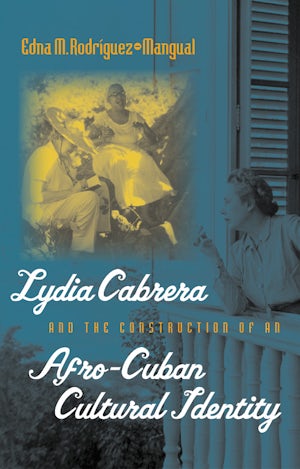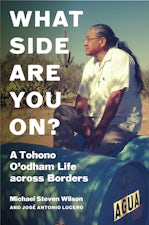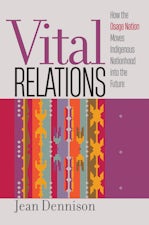Lydia Cabrera and the Construction of an Afro-Cuban Cultural Identity
By Edna M. Rodríguez-Plate
216 pp., 5.5 x 8.5, 5 illus., notes, bibl., index
-
Paperback ISBN: 978-0-8078-5554-6
Published: September 2004 -
E-book EPUB ISBN: 978-0-8078-7628-2
Published: November 2005 -
E-book PDF ISBN: 979-8-8908-7868-7
Published: November 2005
Envisioning Cuba
Buy this Book
- Paperback $47.50
- E-Book $29.99
For Professors:
Free E-Exam Copies
Rodríguez-Mangual examines Cabrera's ethnographic essays and short stories in context. By blurring fact and fiction, anthropology and literature, Cabrera defied the scientific discourse used by other anthropologists. She wrote of Afro-Cubans not as objects but as subjects, and in her writings, whiteness, instead of blackness, is gazed upon as the "other." As Rodríguez-Mangual demonstrates, Cabrera rewrote the history of Cuba and its culture through imaginative means, calling into question the empirical basis of anthropology and placing Afro-Cuban contributions at the center of the literature that describes the Cuban nation and its national identity.
About the Author
Edna M. Rodríguez-Mangual is assistant professor of Spanish at Texas Christian University, where she also teaches courses on Latin American literature, culture, and film.
For more information about Edna M. Rodríguez-Plate, visit
the
Author
Page.
Reviews
"An important book. . . . Offers an interesting and valuable biographic source for scholars and undergraduate students interested in Caribbean Studies, Cuban culture and literature, [and] the heritage of Africa in Hispanic America. . . . It brings light where knowledge was lacking."--Latin Americanist
"A genuine success in this work is the way in which the author brings to the fore Cabrera's deep engagement with the Afro-Cuban subject and an investedness in the telling of their stories. . . . A valuable contribution to the study of Caribbean ethnography."--Canadian Journal of Latin American and Caribbean Studies
"The central thesis of this book is beyond reproach. . . . If Mangual-Rodriguez begins an Anglophone tradition of writing on Cabrera she will have done a real service to the memory of this great scholar."--New West Indian Guide
"A pioneering effort . . . intelligently focused on reading a variety of Cabrera's text--all but one unavailable in English translation. . . . A valuable book."--Journal of American Folklore
"For years I have been waiting for a book that would illuminate Lydia Cabrera's amazing contributions to Afro-Cuban studies. Lydia Cabrera is the most important woman anthropologist Cuba has produced, and yet this is the first book in English to offer a thorough acccount of Cabrera's life and work. A thoughtful, profound, and necessary book."--Ruth Behar, University of Michigan
"This book makes a significant contribution to the fields of Afro-Hispanism and Cuban studies. Not only does Rodríguez-Mangual present Lydia Cabrera as someone who has surpassed Fernando Ortiz's hegemonic national project, but she also makes Cabrera the true leader of 'transculturation' in Cuba."--Mariela A. Gutiérrez, University of Waterloo, Ontario, Canada




